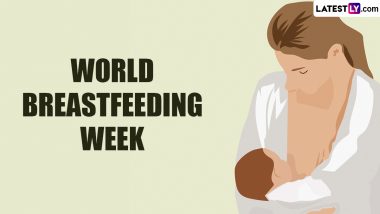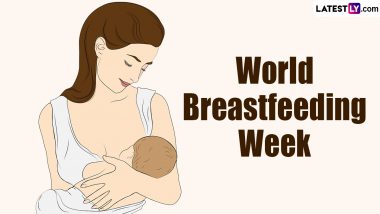World Health Organization (WHO) recommends breastfeeding for six months at the very least, but what’s the reasoning behind this? Well, breastfeeding is one of the most effective ways to ensure child health, and if it was scaled up to near-universal levels, about 820,000 children’s lives would be saved every year. World Breastfeeding Week is observed from 1 to 7 August every year to create awareness about the importance of breastfeeding. This year, WHO has joined hands with UNICEF and other partners to promote as well as execute the family-friendly policies related to breastfeeding.
Paid Maternity Leave
A woman must rest for a minimum of ten weeks post-delivery (if normal delivery without any complications) and more so if C-section. The World Health Organisation will stress on enacting paid maternity leaves for a minimum of 18 weeks. Maternity leave also entails breastfeeding, which not only aids in the growth and nutrition of the baby but also builds an emotional bond between the mum and baby. In 2016, Rajya Sabha passed an amendment to the Maternity Benefit Act of 1961. The bill not only stated that the period of maternity leaves would increase from 12 to 26 weeks but would also facilitate a ‘work from home’ policy for mothers who are nursing, once the leave period ends. Breastfeeding Provides The Strongest Foundation For Lifelong Health and Optimal Nutrition
Paid Paternity Leave
WHO wants to roll out paid paternity leaves to encourage shared responsibility to care for the newborn. Though a national policy remains a distant dream, corporates are taking note of the evolving role of new fathers. In 2015, when Facebook CEO Mark Zuckerberg declared that he would be availing a two-month paternity leave, it was still a novel concept. Since then, a lot has changed across the world. In fact, Indian food delivery company Zomato made headlines after rolling out a 26-week paternity leave for its employees. 5 Myths About Breastfeeding We Should Stop Believing In.
Parent-friendly Workplace
A parent-friendly workplace is key to help mothers breastfeed their children at work. It includes access to breastfeeding breaks and providing them a safe, private and hygienic space for expressing and storing breast milk. It will also focus on providing affordable childcare. In recent decades, we have seen important actions taken globally to set up breastfeeding or mother-friendly workplaces. In India, the Maternity Benefit Act has been constituted to protect the rights of working mothers.
Implementation of these policies will not only back the baby's health but also help new parents protect and support their family.
(The above story first appeared on LatestLY on Aug 01, 2019 12:44 PM IST. For more news and updates on politics, world, sports, entertainment and lifestyle, log on to our website latestly.com).













 Quickly
Quickly




















